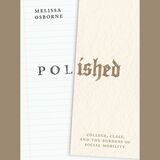7 have author last names that start with J have author last names that start with J
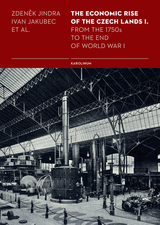
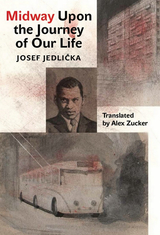
Meditative and speculative reflections here alternate and overlap with fragmentary accounts of Jedlicka’s own biography and slices of the lives of people around him, typically rendered as overheard conversations. The narrative passages range in chronology from May 1945 to the early 1950s, with sporadic leaps through time as the characters go about the business of “building a new society” and the mythology that goes with it. Due to its critical view of socialist society, Midway remained unpublished until 1966, amid the easing of cultural control, but a complete version of this darkly comic novel did not appear in Czech until 1994.
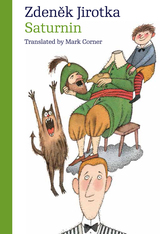
On its initial publication in Czech in 1942, Saturnin was a best seller, its gentle satire offering an unexpected—if temporary—reprieve from the grim reality of the German occupation. In the years since, the novel has been hailed as a classic of Czech literature, and this translation makes it available to English-language readers for the first time—which is entirely appropriate, for author Zdeněk Jirotka clearly modeled his light comedy on the English masters Jerome K. Jerome and P. G. Wodehouse. The novel’s main character, Saturnin, a “gentleman’s gentleman” who obviously owes a debt to Wodehouse’s beloved Jeeves, wages a constant battle to protect his master from romantic disaster and intrusive relatives, such as Aunt Catherine, the “Prancing Dictionary of Slavic Proverbs.” Saturnin will warm the heart of any fan of literary comedy.

On its initial publication in Czech in 1942, Saturnin was a best seller, its gentle satire offering an unexpected—if temporary—reprieve from the grim reality of the German occupation. In the years since, the novel has been hailed as a classic of Czech literature, and this translation makes it available to English-language readers for the first time—which is entirely appropriate, for author Zdeněk Jirotka clearly modeled his light comedy on the English masters Jerome K. Jerome and P. G. Wodehouse. The novel’s main character, Saturnin, a “gentleman’s gentleman” who obviously owes a debt to Wodehouse’s beloved Jeeves, wages a constant battle to protect his master from romantic disaster and intrusive relatives, such as Aunt Catherine, the “Prancing Dictionary of Slavic Proverbs.” Saturnin will warm the heart of any fan of literary comedy.
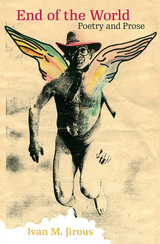
End of the World is the first major collection in English of the works of this legendary Czech “madman.” Although nicknamed for his aggressive and rebellious behavior, Jirous’s writing reveal a refined, sophisticated, and even tender sensibility. Translated in part by Paul Wilson, an original member of the Plastic People, the book gathers his poems and letters from prison, as well as his book-length prose work, The True Story of the Plastic People, alongside critical essays on Jirous’s life and work. End of the World is an ideal introduction to the raucous writer who playwright Tom Stoppard referred to as one of the most interesting personalities in modern Czech history.
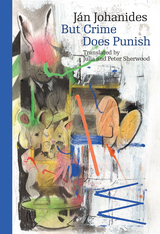
“So, as you see, I am familiar with the case. However, we can’t discuss it unless you learn more about some other court cases, so that you can compare your father’s trial with other, more baffling cases, and see it in the context of the madness that reigned at the time.”
Ján Johanides’ riveting Slovak novel immediately thrusts you into the midst of a bewildering second-person dialogue, bestowing the reader with the role of a silent partner in a one-sided conversation with a mysterious archivist. As the story unfurls piece by piece, it becomes clear that the archivist, who can’t seem to stay on topic, has both a tragic history and the key to unlocking your family’s darkest secret, a secret that may or may not involve the Czechoslovak secret police, American and Soviet intelligence, Israeli politics, and a tire full of dollars.
Set after the fall of the Soviet Union and the dissolution of Czechoslovakia, But Crimes Do Punish is awash with paranoia, revealing how the madness of the Communist era continues to bleed into the instability of the present. Written in 1995, this haunting novel—the first work of Slovak fiction published by Karolinum Press—evokes the spirit of John le Carré and the style of Carlos Fuentes while illuminating issues that still plague post-Communist Europe.
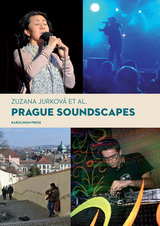
Prague Soundscapes seeks to understand why in human society—in its behavior, values, and relationships—music is produced and how those who make it listen to it. Based on recent theories of cultural anthropology, this study offers an account of the musical activities of contemporary Prague in different musical genres, cultural spaces, and events. The text is bolstered by color photographs of the musical events, producers, and listeners.
READERS
Browse our collection.
PUBLISHERS
See BiblioVault's publisher services.
STUDENT SERVICES
Files for college accessibility offices.
UChicago Accessibility Resources
home | accessibility | search | about | contact us
BiblioVault ® 2001 - 2024
The University of Chicago Press


